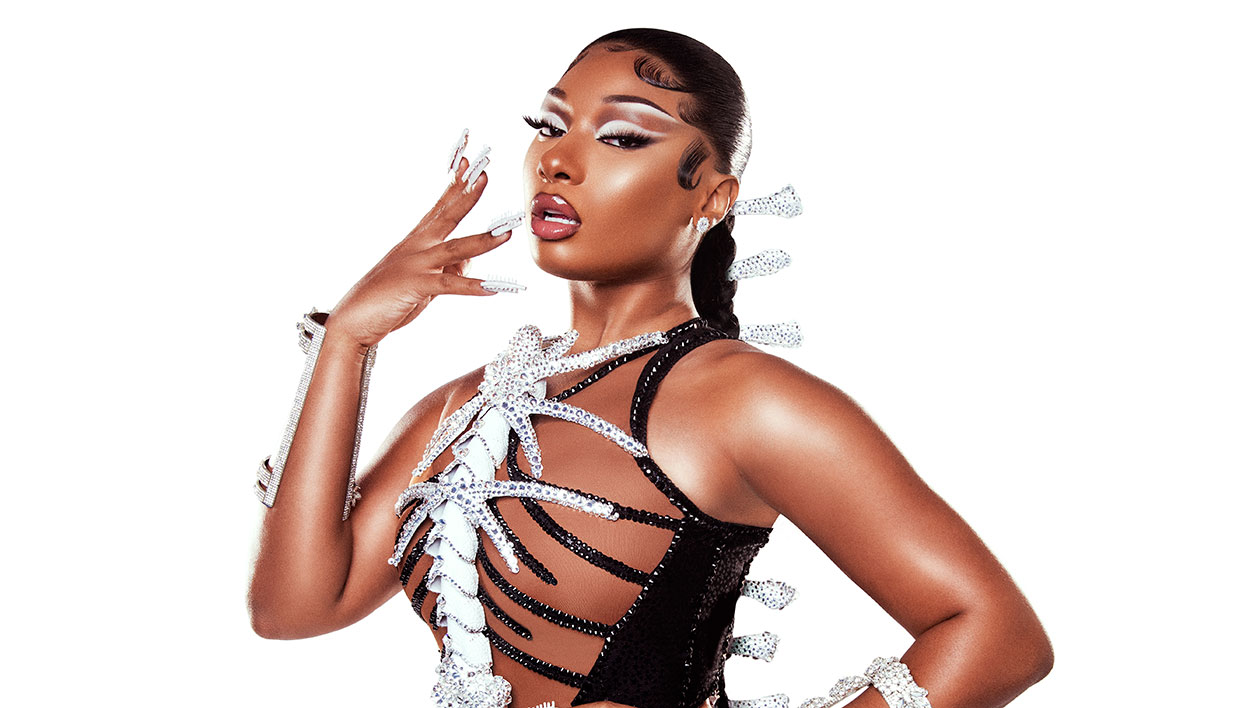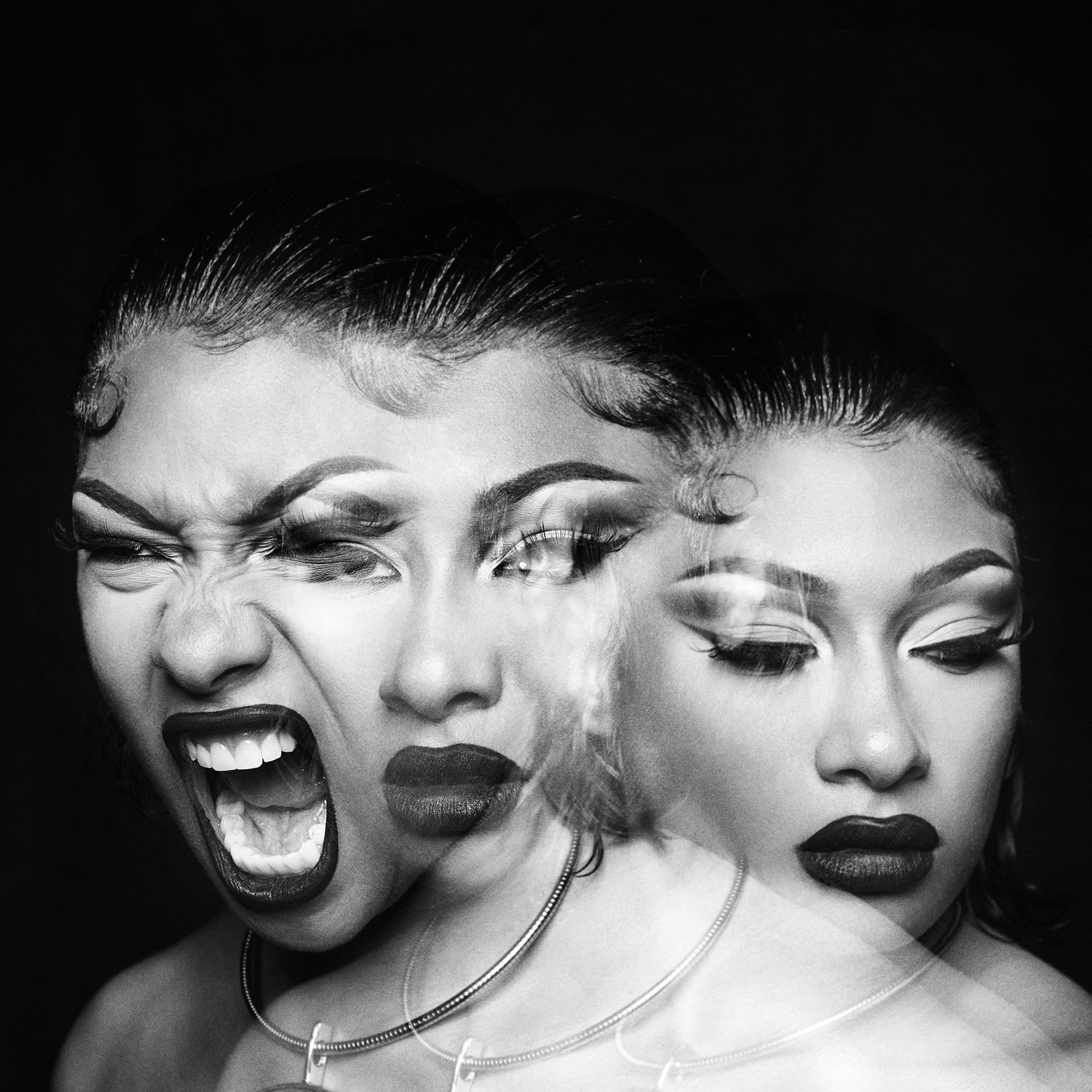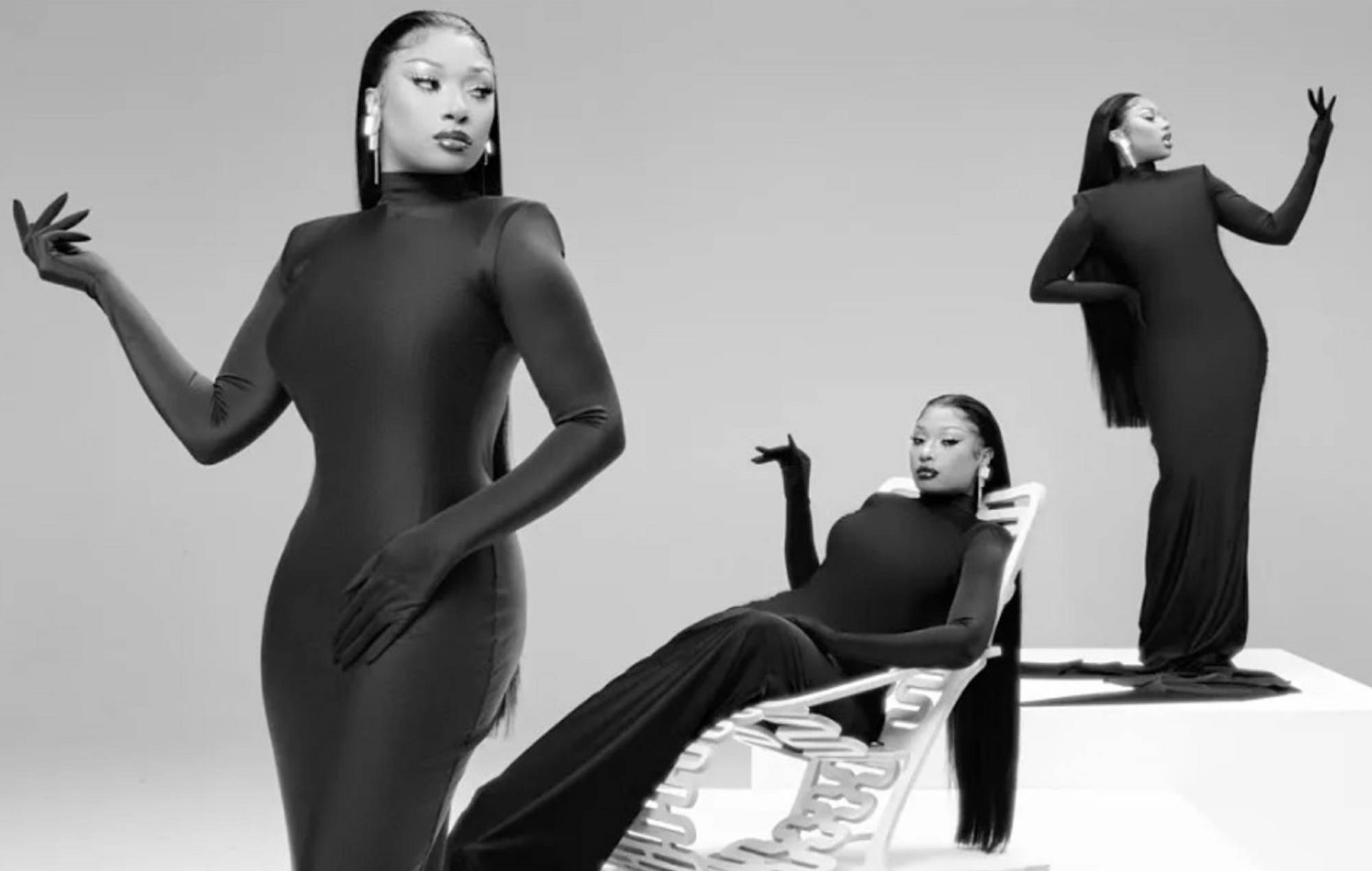We need difficult women like damn — with urgency.
We need difficult women like unlearning that love is always hard laboured for.
Like remembering that the stakes were always high — for the stakes were always you.
We need difficult women like breaking generational curses.
We need difficult women like remembering we’ve always mattered.
Like moving from surviving to thriving.
Lindiwe Mngxitama in Interrogating the villain era — our urgent need for “difficult” women
“On her second album, Meg dishes out disses, gets political, and grapples with her personal life. It’s an ambitious and uneven attempt to step into her most challenging role yet: herself.” Writes Heven Haile for Pitchfork.
Released on August 12th 2022, Traumazine is Stallion’s most vulnerable musical offering to date. Peeling off the alter ego armour and masks of Tina Snow, Suga and Hot Girl Meg — Stallion sonically takes us through what has been her journey these past few years since the release of her Freshman album Good News in 2020, and the grief, loss, betrayal as well as the media and public scrutiny she has had to live through and endure these past two years specifically.


Speaking to Apple Music’s Ebro Darden and Nadeska, Megan expressed:
Usually when I write songs like… I could be sad and I’ll write a song like ‘Body’ or I could be pissed off and I’ll write a song like ‘Freak Nasty’.” I don’t write songs about how I feel; I write songs about how I want to feel.” Meg continues, “So I feel like, on this album, it’s probably the first time I figured out how to talk about what I want to say, I feel like it’s been so easy for people to tell my story for me. I wanted to take control of my narrative — take control of my own story.
I think that society often forgets that behind the Cult of Celebrity are actual complicated human beings with full lives that exist beyond our parasocial relationships with them. This, in the same way that it dehumanises Black women in a world that does not know how to hold space for us as autonomous complex subjects with a plethora of experiences and feelings, but only knows how to push up against us as enfleshed objects, allowed to belong to anyone but ourselves. As Hortense J. Spillers writes in Mama’s Baby, Papa’s Maybe: An American Grammar Books:
Let’s face it. I am a marked woman, but not everybody knows my name. ‘Peaches’ and ‘Brown Sugar’, ‘Sapphire’ and ‘Earth Mother’, ‘Aunty’, ‘Granny’, ‘God’s Holy Fool’ a ‘Miss Ebony First’, or ‘Black Woman at the Podium’: I describe a locus of confounded identities, a meeting ground of investments and privations in the national treasury of rhetorical wealth. My country needs me, and if I were not here, I would have to be invented.
Imagine the overwhelming sense of existing at the intersection of those two abstracting and isolating states of being…

“I ain’t perfect, but anything I did to any of you niggas, y’all deserved it (y’all deserved it)” — Meg raps on ‘NDA’ — the album’s opening track, and with it, I feel and can relate to Meg’s exhausted frustration along with the sense of aloneness and being guarded — as a form of self-preservation — which pepper’s the entire track; which pepper’s our collective and individual existence as Black Femmes. Reflecting on Traumazine’s writing process with Ebro Darden and Nadeska she expresses, “I was crying more so writing the songs than recording the songs,” revealing that, “It kind of felt like a weight off my chest… actually saying some of these things out loud.”
Thinking about and through the refusal to “place nice” in an earlier article I wrote:
Certain ways of being — certain freedoms and possibilities of existence — are not afforded to all of us equally. In the way that asserting your agency, boundaries and a refusal to overextend or shrink yourself performing unreciprocated and extractive labour, becomes read as difficult or villainous when embodied by people marked externally by scripts of race and gender.
I feel like people expect me to make myself smaller, be nice, talk a certain typa way, or act a certain typa way to be accepted. In my career, there’s probably been a handful of times that I’ve said no because I was always trying to make sure that I was making everyone else happy. I just wanted to be good and I didn’t want to rub nobody the wrong way — I just wanted to be nice.

“Fuck it, bitch, I’m not nice. I’m on my ‘fuck you’ shit. Bitch, I’m done bein’ nice. And when it come to cuttin’ people off, I don’t think twice.” Raps Meg on ‘Not Nice’ — the album’s third track and banger . As the beat keeps banging she continues, “I guess my skin not light enough, my dialect not white enough (Damn). Or maybe I’m just not shaped the way to make these niggas give a fuck.” As I listen, I think of Maya Angelou’s poem and performance of We Wear The Mask;
We wear the mask that grins and lies.
It shades our cheeks and hides our eyes.
This debt we pay to human guile
With torn and bleeding hearts . . .
We smile and mouth the myriad subtleties.
Why should the world think otherwise
In counting all our tears and sighs.
Nay let them only see us while
We wear the mask.
I think that Traumazine is Megan Thee Stallion’s removal of the mask — the mask of niceness, of impenetrable hottie armour and all the other ones she has had to put on to survive in the world and in an industry littered with misogynoir. I think of this removal of the mask as a mode of healing, and I think of her stepping into expressing her anger as a form of reclaiming herself for herself, we just happen to have been granted the honour of bearing witness to some of that process. The process of Meg stepping into — in the legacy of Baby Suggs’ Clearing Sermon from Toni Morisson’s Beloved — her sonic Clearing Sermon as made manifest in Traumazine.





















































